Are you looking for the perfect way to craft a performance appraisal letter that truly resonates with your employees? Writing an effective letter can set the tone for motivation and open communication, making it easier to discuss accomplishments, areas for improvement, and future goals. It's important to strike a balance between professionalism and encouragement, ensuring your team feels valued while also understanding expectations. Join us as we explore essential tips and a customizable template that will help you write an impactful annual performance appraisal letter!

Clear Objectives and Performance Goals
Clear objectives and performance goals are essential for assessing employee performance during annual appraisals. Specific, measurable, attainable, relevant, and time-bound (SMART) goals, such as increasing quarterly sales revenue by 20% in Q2 2024, enhance clarity of expectations. Regular feedback sessions, held bi-monthly, facilitate communication and progress tracking for these defined targets. Performance indicators like project completion rates, for instance, achieving 90% on-time project delivery by the end of the fiscal year, provide a quantifiable basis for evaluation. Employee engagement in setting these objectives fosters ownership, leading to improved motivation and productivity.
Employee Achievements and Contributions
During the 2023 fiscal year, John Smith demonstrated exceptional performance in his role as a Senior Data Analyst at Tech Innovations Inc., located in San Francisco, California. John successfully completed over 15 major projects, contributing significantly to an overall 20% increase in project efficiency. His deep understanding of data analytics tools, particularly Power BI and Python for data manipulation, allowed him to identify key trends that informed strategic decisions. John also played a pivotal role in leading a cross-departmental team for the annual Tech Summit, resulting in a remarkable 300-attendee increase compared to the previous year's event. His presentation on "Data-Driven Decision Making" received a 95% approval rating from attendees, showcasing his ability to communicate complex ideas effectively. Additionally, John mentored three junior analysts, facilitating their professional growth and enhancing team productivity by implementing weekly training sessions. His contributions were instrumental in achieving the company's goal of improved operational efficiency.
Constructive Feedback and Areas for Improvement
Annual performance appraisals provide a structured opportunity for employees to receive constructive feedback about their work performance within the organization. Specific areas for improvement could include enhancing communication skills, which encompasses effective verbal and written interactions with colleagues and clients. Another crucial aspect pertains to time management, emphasizing the need for prioritizing tasks and meeting project deadlines consistently. Additionally, professional development opportunities, such as workshops or online courses in leadership or technical skills, can significantly boost overall performance and career growth. It is essential for employees to set measurable goals for the upcoming year, aligning with organizational objectives, to foster personal and professional advancement. Regular check-ins with supervisors can facilitate ongoing support and adjustment of strategies aimed at improvement.
Professional Development and Training Opportunities
Annual performance appraisals serve as a critical tool for assessing professional growth and identifying training opportunities. Employee development programs, such as workshops and online courses, offer skill enhancement in areas like communication, leadership, and technical proficiency. Organizations often provide resources, including access to industry conferences and mentorship initiatives, to support career advancement. Evaluating progress during these appraisals can align individual goals with organizational objectives, fostering a culture of continuous learning and improvement. By prioritizing professional development, companies can enhance employee satisfaction and retention alongside overall productivity.
Future Goals and Career Path Planning
During annual performance appraisals, an assessment of future goals and career path planning plays a significant role in professional development. Employees engage in thoughtful discussions with supervisors about aspirations, aligning personal ambitions with company objectives. Identifying specific goals, such as achieving advanced certifications in targeted fields like project management or data analysis, can enhance skill sets. Additionally, mapping out a career trajectory within the organization, perhaps by aiming for leadership roles in departments such as marketing or operations, fosters motivation and direction. Regular check-ins throughout the year can help track progress and adjust goals as necessary, ensuring that both employee ambitions and company needs evolve harmoniously.

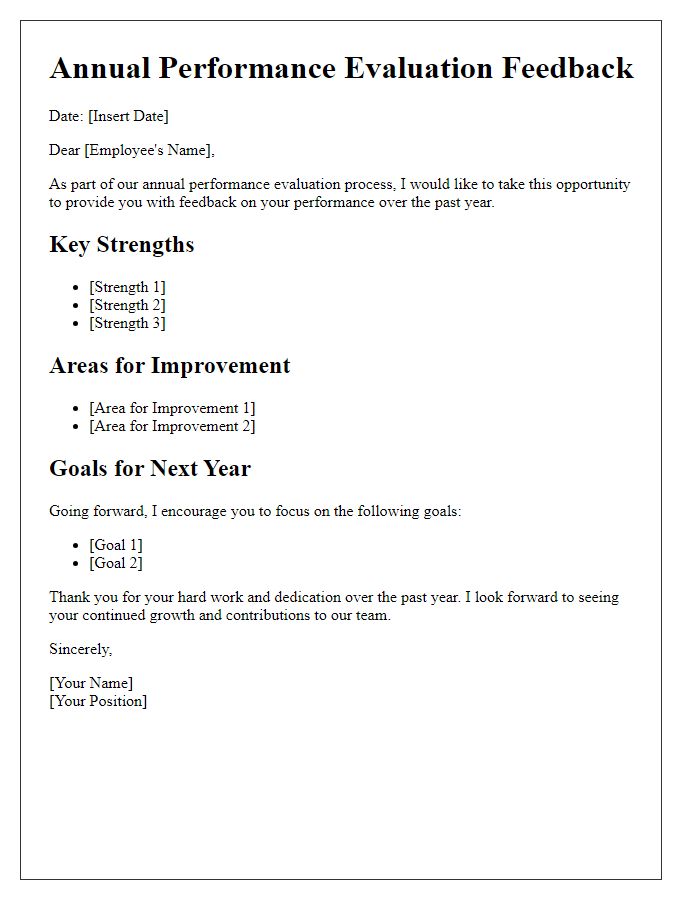
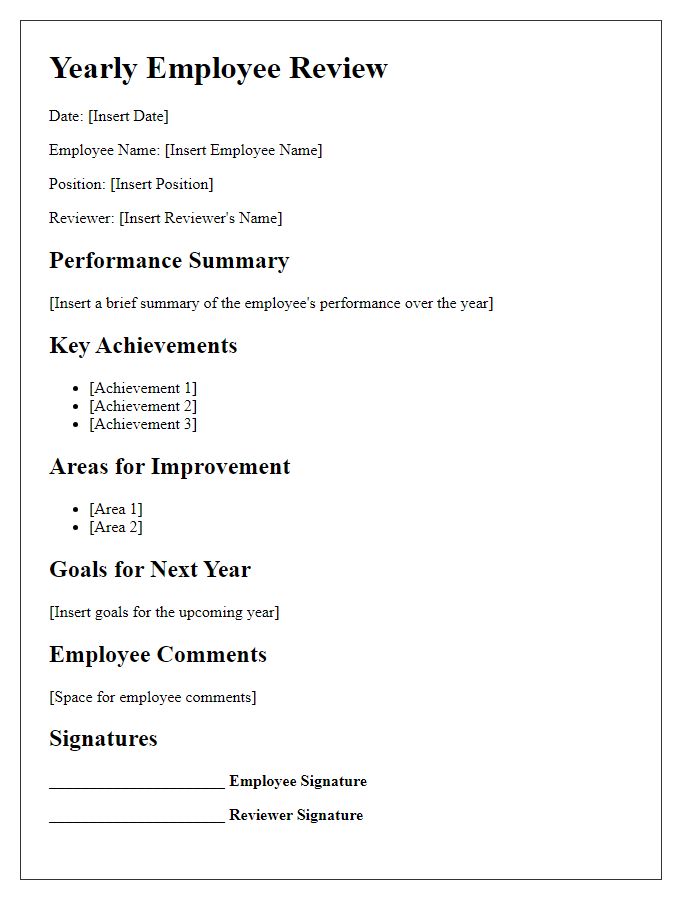
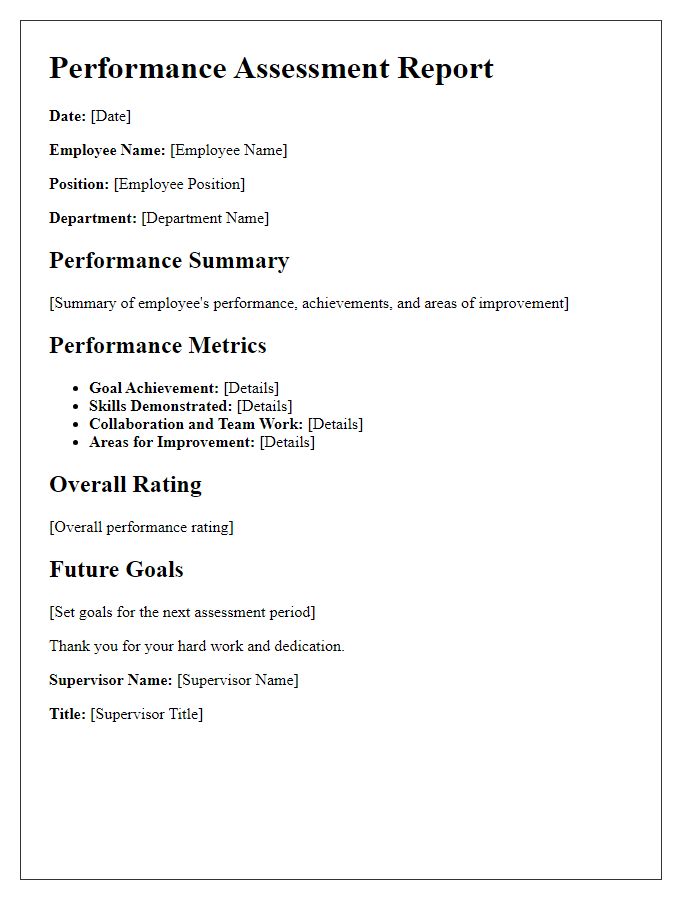
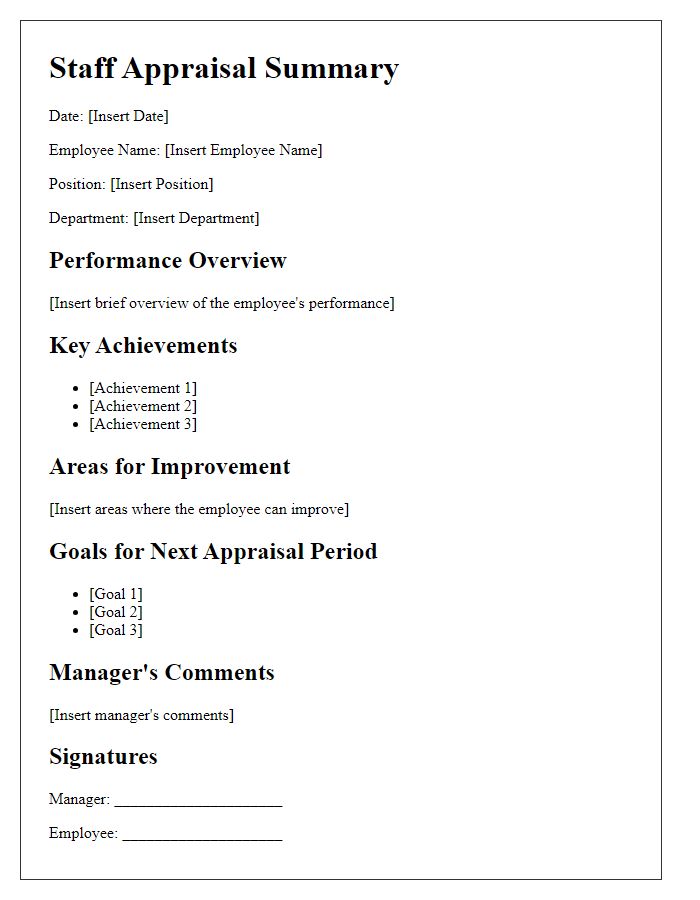
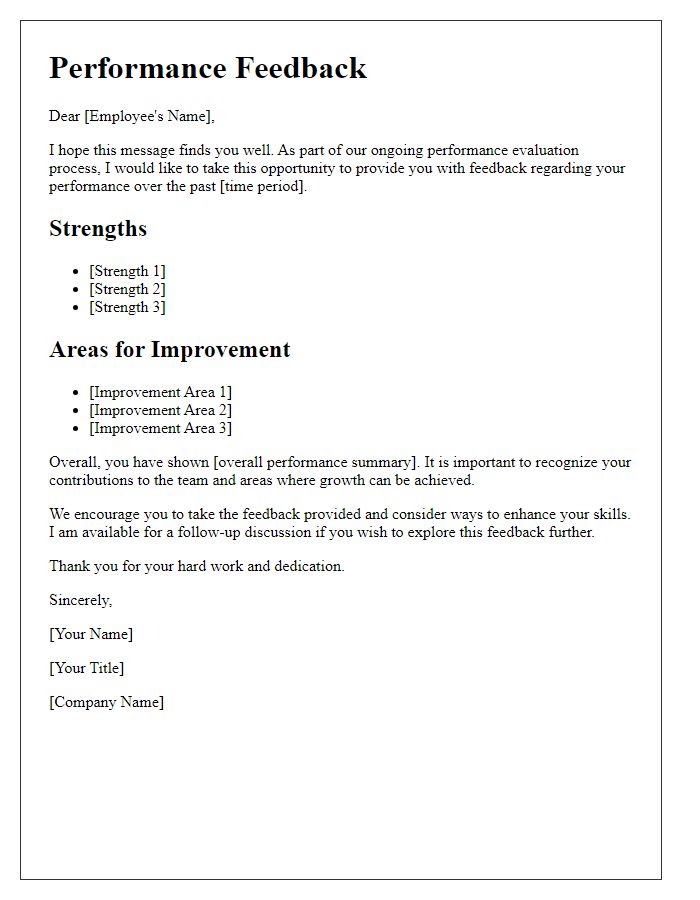
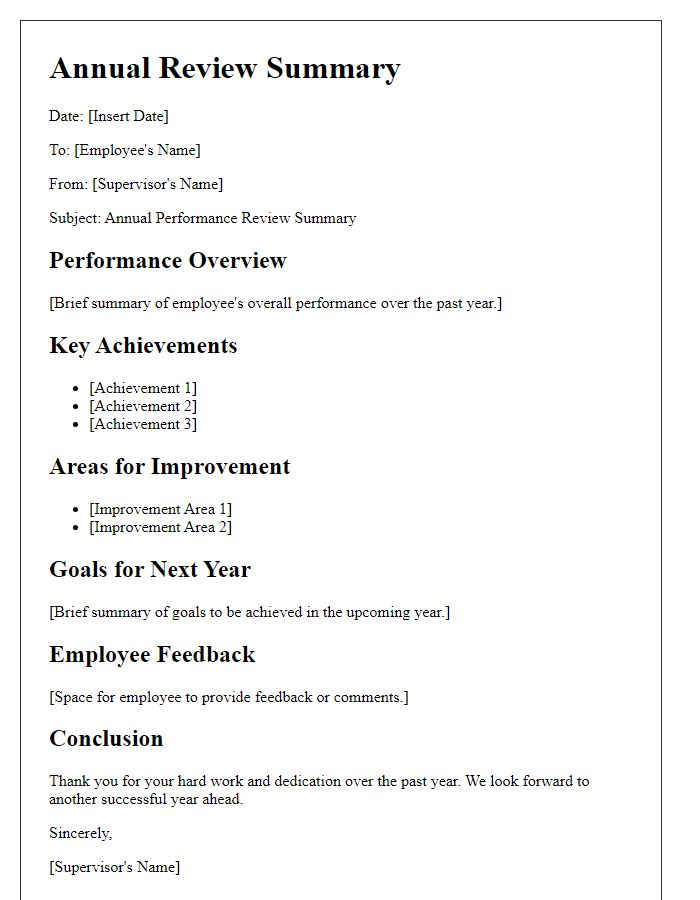
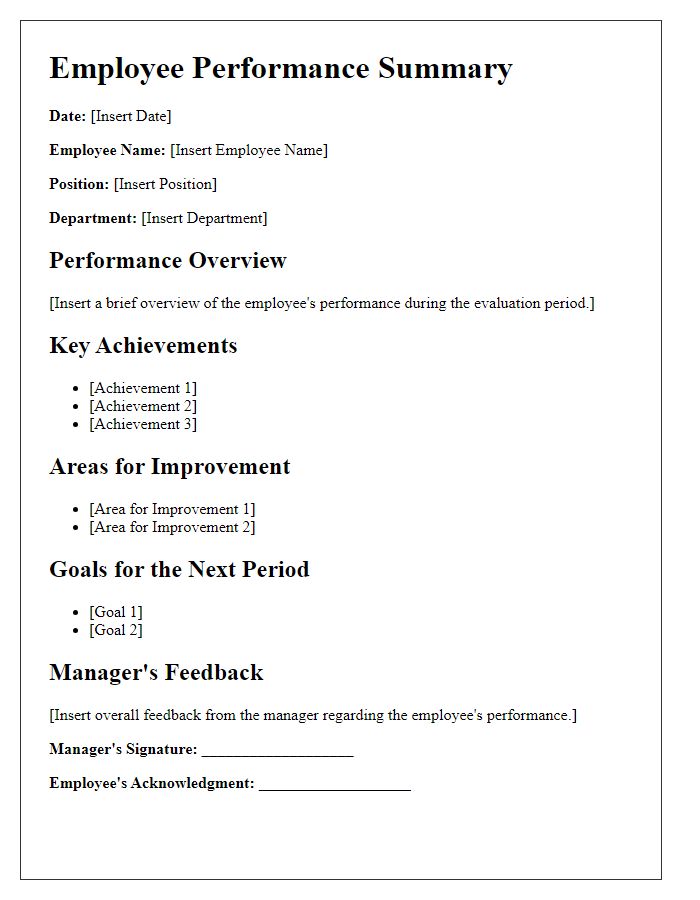
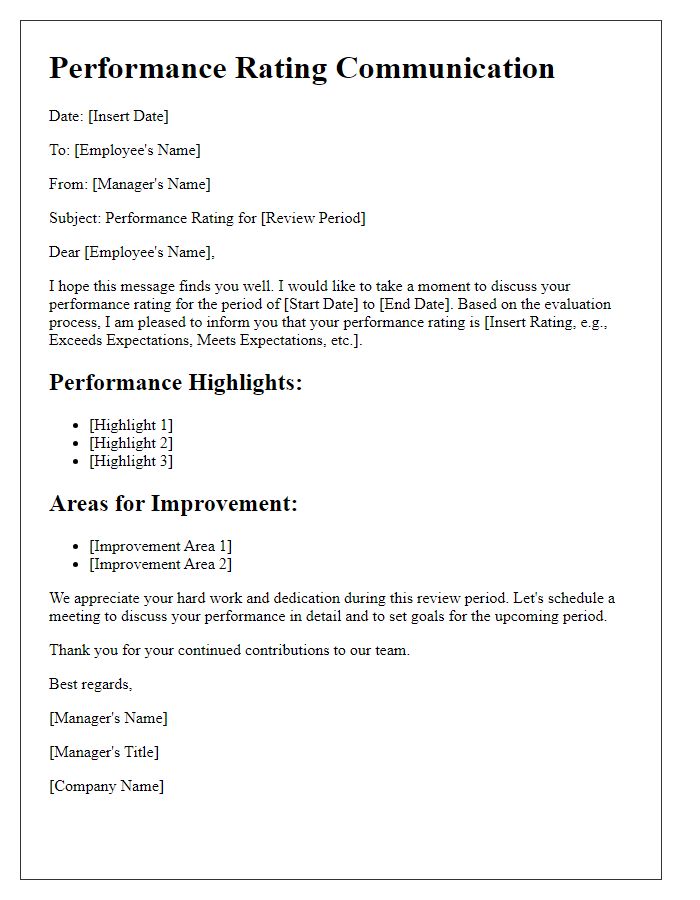
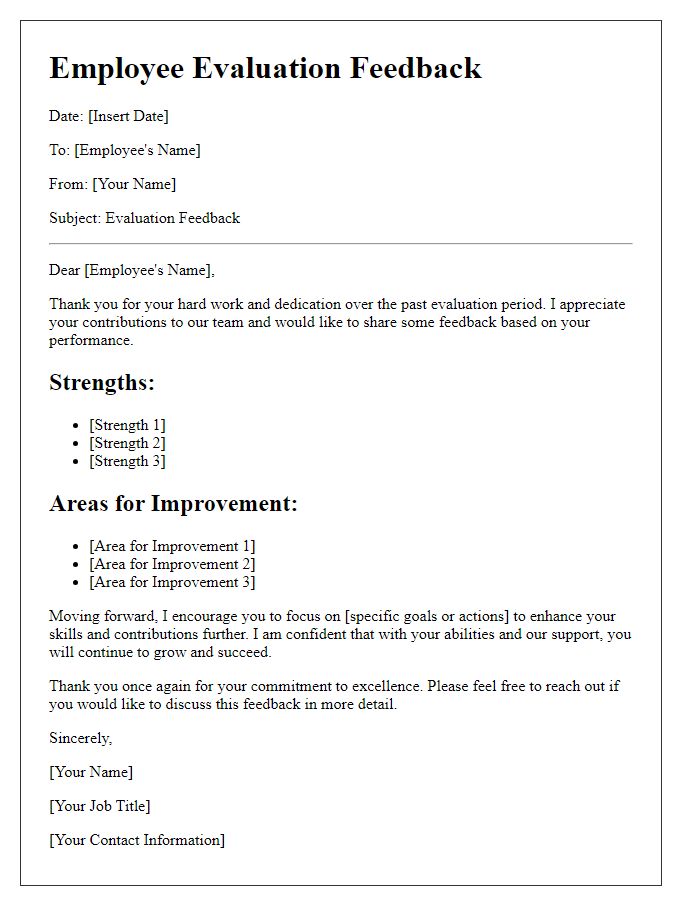
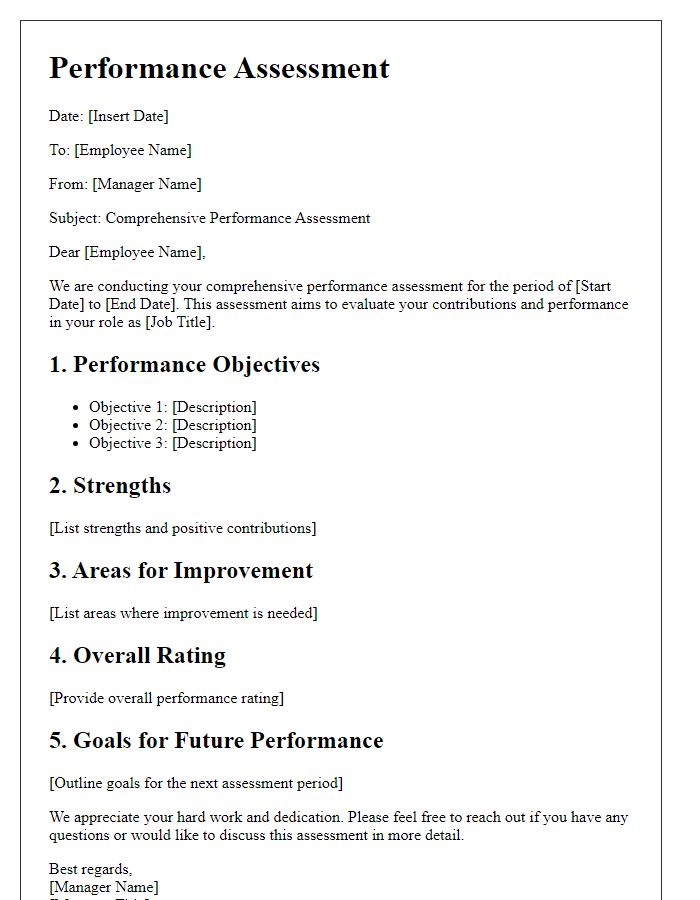


Comments